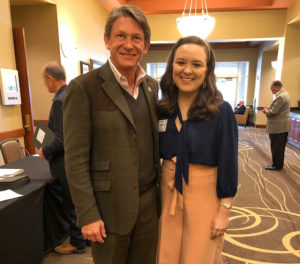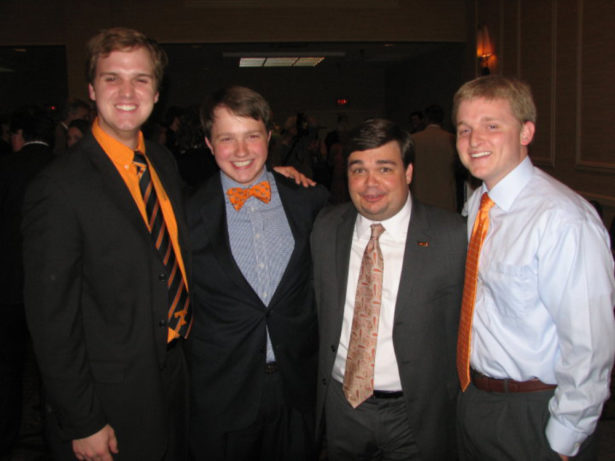UT Students Intern with the Tennessee Legislature
By Jackie Wise
Photos courtesy of UTAA
The relationship between the University of Tennessee System and the Tennessee Legislature goes beyond the annual legislative session in Nashville, budget hearings and advocacy. Behind the scenes are students from the UT System campuses who are getting first-hand lessons on the legislative process and the dynamics of politics.
Interns serve a legislative committee office, a leadership office in the House or Senate or the UT Office of Government Relations and Advocacy. Through funding from the UT Alumni Association’s Fund for the Future, seven students with a passion for politics gain career-changing experience as they navigate the legislative session.
Dalis Lampkin (Martin ’19) interned in the UT Office of Government. She spent the 2019 legislative session handling typical office duties, as well as attending committee meetings, writing the weekly newsletter for UT legislative advocates, analyzing bills and assisting with events.
“I hoped to gain a better understanding of how policy implementation actually occurs by being able to witness it firsthand, instead of just learning about it in the classroom setting,” says Lampkin of why she applied for the program.

Randy Boyd at the 2019 Alumni
Legislative Council meeting.
Her favorite experience was when the office received the Fiscal Year 2019-2020 Budget Books. They gathered in the conference room and shared the appropriations for the UT System with President Randy Boyd.
“The excitement in the room was incredible,” she says.
The lessons from her internship pushed her focus to higher education policy. Lampkin is pursuing a Ph.D. in public policy and administration and hopes to use her experience and knowledge of advocacy when she is teaching at the collegiate level.
With an interest in government since elementary school, Reid Witcher (Knoxville ’11) saw the internship program as a natural fit. He wanted a peek behind state government to see how things really work, which is exactly what he got through his assignment with then-House Majority Leader Jason Mumpower.
He remembers monitoring committees for the legislative team, sitting through meetings listening to bill discussions and recording votes on key legislation.
“As a political science major, that was my first time in the field, and I was hooked,” Witcher says.

Witcher, who interned during the 2010 legislative session, now works as a consultant and chief operating officer with a Nashville-based fundraising, compliance and communications firm. The hands-on experience he had during his internship is one that he believes can’t be replicated in the classroom.
“I had a theoretical knowledge of the legislative process from course work, but I was blown away by the scope of state government from my experience,” he says.
Currently an associate in the Office of UT Government Relations, Kaitlin Flippo (Knoxville ’19) interned in the same office during the 2018 Legislative Session. Flippo was studying journalism and electronic media with a minor in political science and wanted the experience to gain a better perspective on government to become a better journalist.

“As someone who majored in journalism, this experience helped me better understand state government, how decisions are made and how the media reports information to the public, which will ultimately help me be a better communications professional in the future,” says Flippo.
It was not an easy start, as Flippo felt a learning curve coming from a communications background and not political science. However, that disadvantage ended up providing a clean slate for her experience and became a blessing in disguise.
“It was important for me to push myself to go beyond my comfort level,” she said.
Stretching that comfort level, Flippo remembers finding out that her work in the weekly advocacy newsletter would be read by then-UT System President Joe DiPietro. While she felt the pressure from that, she found working for UT on an administrative level as a student incredibly surreal.
All of the interns described the internship as one of the most important steps they took for their future and one of the best experiences during their time as an undergraduate.
Students in the internship program receive a stipend, which is partially funded through the UT Alumni Association’s Fund for the Future. That fund underwrites scholarships, faculty awards, alumni programming and legislative internships. To learn more about the Fund for the Future and help future legislative interns realize their passion for politics, visit alumni.tennessee.edu.



